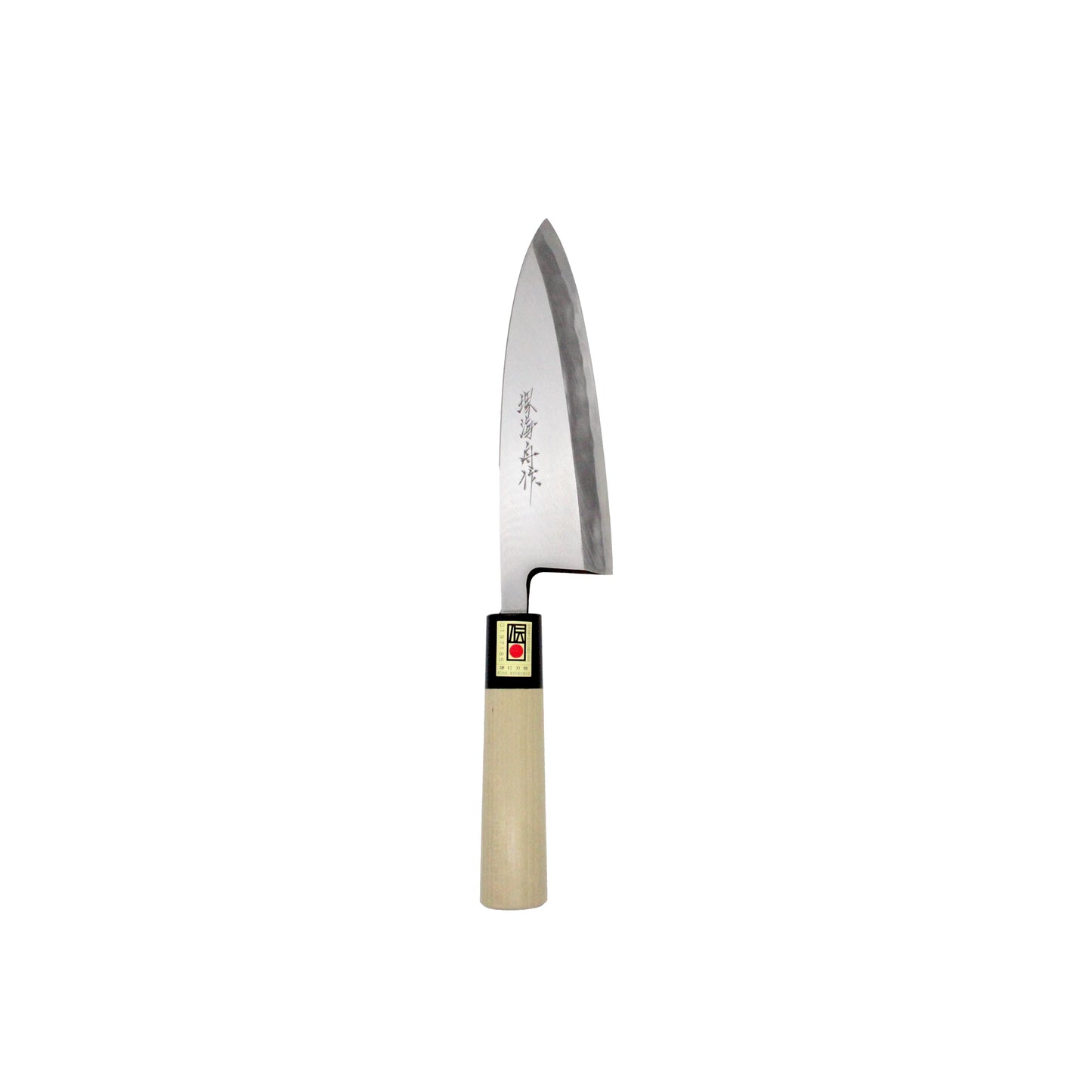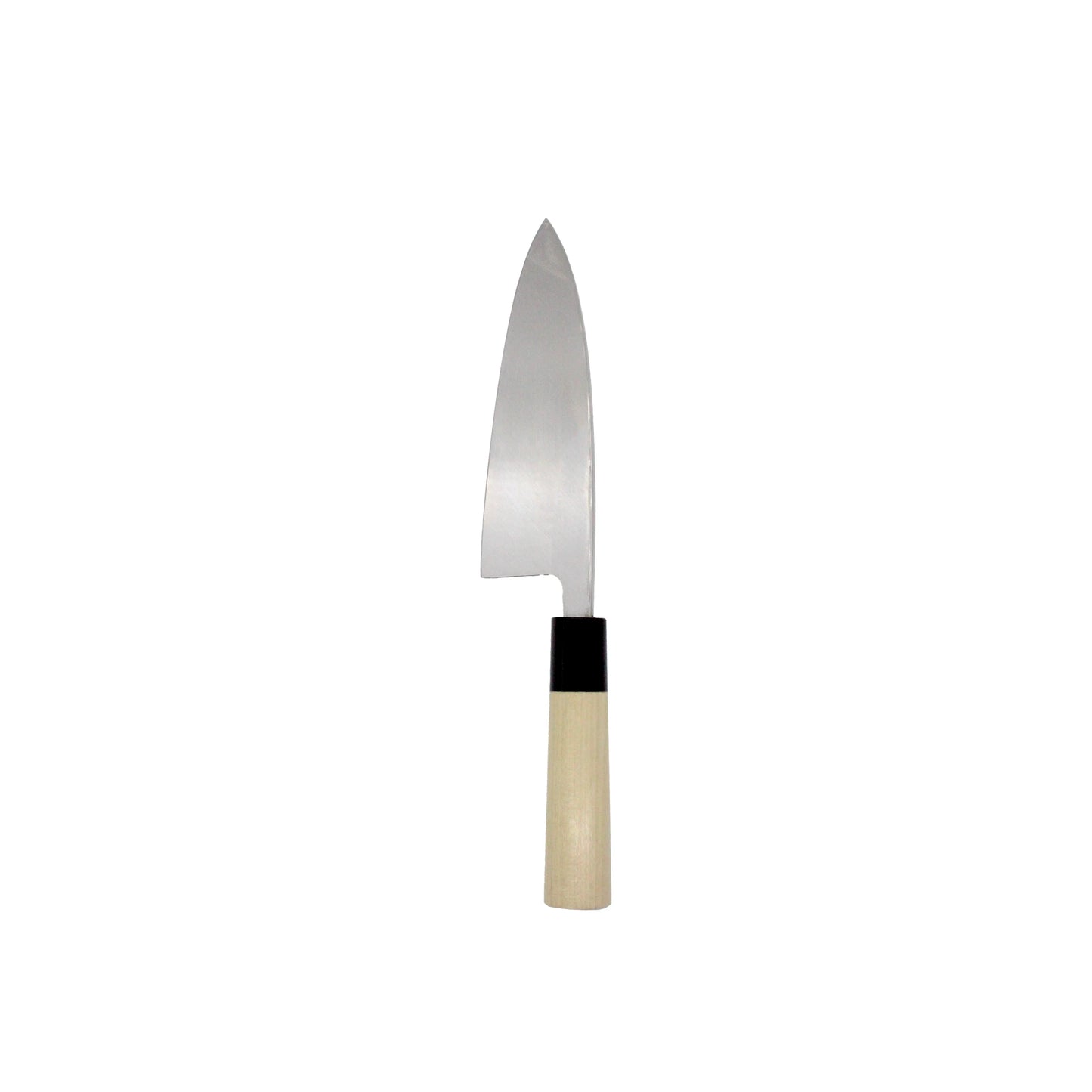The Deba is a traditional heavy-duty Japanese knife designed primarily for filleting fish and jointing poultrey. It is known for its sturdy build and thick blade, making it ideal for cleanly preparing whole fish and cutting through fish bones and tough parts like the head without damaging the edge. The tip is sharp and sturdy, useful for detailed tasks such as removing fish scales, making initial cuts, or working around bones.
Western knives, often made from softer stainless steel, are less prone to chipping but dull much more quickly and will eventually need to be professionally sharpened to restore their edge.
This knife features a single-bevel edge, allowing for precise cuts and clean filleting.
Hand-sharpened by master craftsman Tahara Shunichi in Sakai, Osaka, a city famed for its blades, this knife is made from white steel, a pure steel prized for its hardness and sharpness. It is made by combining iron with carbon without adding other compounds. With a Rockwell hardness of HRC 64–65, it holds an extremely fine edge, perfect for slicing without tearing or crushing.
-
Blade length: 165mm
-
Steel: White Steel (Shirogami) – a hard carbon steel known for its razor-sharp edge
-
Finish: “Migaki” A polished but not shiny finish designed to showcase the clean lines of the blade
-
Handle: Octagonal wooden handle with a water buffalo horn ferrule for durability and comfort
-
Edge: Single bevel (suitable for right-handed users)
Japanese knives require a little bit more maintenance than Western knives as white steel can rust if not dried properly, the reward is a blade that holds a razor-sharp edge far longer. With minimal effort, you can keep these knives in top condition yourself, without the need for regular professional sharpening.
To maintain your blade:
- Dry thoroughly after each use to avoid moisture buildup.
- Sharpen regularly using a water whetstone (available here) to preserve the edge and prolong the life of the knife.
- Avoid using a honing rod, which can damage the fine edge of Japanese blades.
With the right care, these blades will remain sharp and precise for years to come.








